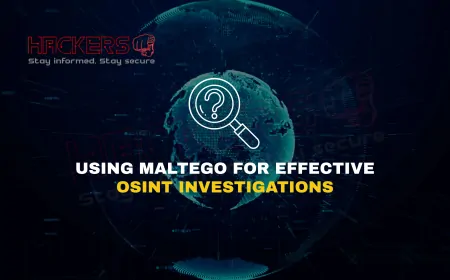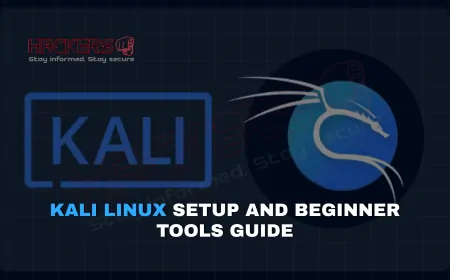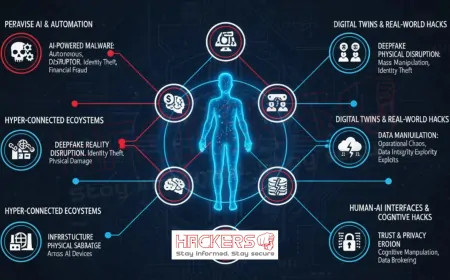How to Prepare for the Certified in Cybersecurity Exam Effectively
Ever feel like the digital world is a wild frontier, full of hidden dangers and endless opportunities? With cyberattacks making headlines almost daily from massive data breaches to sneaky ransomware—it's no wonder cybersecurity is one of the hottest careers right now. If you're a beginner looking to break in, the Certified in Cybersecurity (CC) exam from ISC2 is your perfect starting line. This entry-level certification doesn't require any prior experience, making it accessible for career changers, students, or anyone curious about protecting the online realm. But preparing for any exam can be daunting, especially in a field that seems packed with complex terms. Don't worry I've been there, staring at study guides wondering where to begin. The good news? With the right approach, you can prepare effectively and even enjoy the process. In this guide, we'll walk through proven strategies, resources, and tips to help you ace the CC exam. Whether you have a few weeks or months, let's turn that overwhelm into confidence. By the end, you'll have a clear roadmap to success in 2025 and beyond.

Table of Contents
- Understanding the CC Exam
- Creating Your Study Plan
- Essential Resources for Preparation
- Effective Study Tips and Strategies
- Practice Exams and Mock Tests
- Common Mistakes to Avoid
- Why Choose Webasha for the Course
- Conclusion
Understanding the CC Exam
Before you dive into studying, it's crucial to know what you're up against. The CC exam, offered by ISC2, tests your foundational knowledge in cybersecurity. As of September 2025, the exam is in a linear format with 100 multiple-choice questions, and you have 2 hours to complete it. You need a scaled score of 700 out of 1000 to pass. It's available in languages like English, Chinese, Japanese, German, and Spanish.
Heads up: Starting October 1, 2025, the exam switches to Computerized Adaptive Testing (CAT) format, which means 100-125 questions that adjust based on your answers—getting harder or easier to better gauge your knowledge. If you're testing after that date, practice with adaptive mocks to get used to it.
The exam covers five domains, each with specific weights:
- Security Principles (26%): Basics like confidentiality (keeping secrets safe), integrity (ensuring data isn't altered), and availability (making sure info is accessible when needed).
- Business Continuity, Disaster Recovery, and Incident Response Concepts (10%): Planning for disruptions, recovering from disasters, and handling security incidents.
- Access Controls Concepts (22%): Managing who can access what, including physical (like badges) and logical (like passwords) controls.
- Network Security (24%): Understanding networks, threats like viruses, and protections like firewalls.
- Security Operations (18%): Day-to-day tasks such as data encryption (scrambling info) and system hardening (making systems tougher against attacks).
These domains focus on concepts rather than hands-on skills, so it's perfect for beginners. No experience is required, and the cost is $199, but check for the ongoing free exam promotion as part of ISC2's One Million Certified initiative. Understanding this structure helps you allocate study time wisely—spend more on higher-weighted areas like network security.
Why bother with CC? It boosts your resume, opens doors to entry-level jobs like security analyst (with salaries around $70,000 starting), and sets you up for advanced certs like CISSP. Plus, with a global shortage of nearly 5 million cybersecurity pros in 2024, your timing is spot on.
Creating Your Study Plan
A solid plan is your secret weapon. Without one, studying can feel scattered. Start by assessing your timeline—if you have 8-12 weeks, that's ideal for beginners. Dedicate 10-15 hours weekly, breaking it into daily sessions to avoid burnout.
Here's a sample 8-week plan:
| Week | Focus | Activities |
|---|---|---|
| 1-2 | Security Principles & Access Controls | Read outlines, watch videos, take notes on key concepts like CIA triad and least privilege. |
| 3-4 | Network Security | Study OSI model, threats, and infrastructure; use diagrams for visualization. |
| 5 | Security Operations & BC/DR/Incident Response | Learn encryption types, policies, and response steps; relate to real breaches. |
| 6-7 | Review & Practice | Quiz yourself, do mocks, focus on weak areas. |
| 8 | Final Prep & Exam | Light review, simulate exam day, rest well. |
Adjust based on your schedule. Track progress with a journal—note what you learned and questions you got wrong. Remember, consistency beats intensity; even 30 minutes daily adds up.
If life's busy, extend to 12 weeks. Include breaks—study like a marathon, not a sprint. Tools like Google Calendar or apps such as Todoist can help stay organized.
Essential Resources for Preparation
Quality resources make all the difference. Start with ISC2's free self-paced training—about 20 hours of videos, quizzes, and labs covering all domains. Download the official exam outline for free; it's your blueprint.
For books, the Official ISC2 CC eTextbook is great, or check Amazon for practice question books like "ISC2 Certified in Cybersecurity Practice Questions 2025." Online platforms: Udemy has full practice exams, and Coursera's Certified in Cybersecurity Specialization aligns perfectly.
Freebies: ISC2 flashcards, YouTube channels for domain breakdowns, and Reddit's r/isc2 for community advice. Join ISC2's CC Study Group for discussions.
For variety, use apps like Quizlet for custom flashcards or Anki for spaced repetition (reviewing at increasing intervals to boost memory).
Effective Study Tips and Strategies
Studying smart is key. Use active learning: Don't just read—quiz yourself, explain concepts aloud, or teach a friend. Create study guides with questions and answers for each subtopic.
Visual aids help: Draw mind maps for domains, like branching from "Network Security" to threats and controls. Relate to real life—think of firewalls as door locks.
Multimodal learning: Listen to podcasts on cybersecurity basics or use text-to-speech for notes. Practice problem-solving for scenarios, like "What to do in a DDoS attack?"
Stay healthy: Sleep well, exercise, and take breaks (Pomodoro technique: 25 minutes study, 5-minute break). Join study groups for motivation—ISC2 chapters are great.
For in-depth questions (20-25% of exam), read beyond basics—understand why concepts matter. If stuck, forums like Reddit have tips from passers.
Practice Exams and Mock Tests
Practice makes perfect. Take full-length mocks to simulate exam day—time yourself, no distractions. ISC2 offers sample questions; Udemy and Amazon have practice tests with explanations.
Aim for 80%+ on practices. Review wrong answers—understand why. For CAT prep (post-Oct), use adaptive tools if available.
Track improvement: Log scores, focus on weak domains. One tip: Do a mock weekly in weeks 6-8.
Common Mistakes to Avoid
Don't cram—space learning. Avoid skipping domains; all matter. Don't ignore ethics and governance—they're in principles.
Over-rely on one resource? Diversify. Neglect health? Burnout kills focus. Finally, read questions carefully—many test nuances.
Why Choose Webasha for the Course
If self-study isn't your jam, consider structured training. Webasha Technologies offers comprehensive CC courses with expert instructors who simplify concepts for beginners. Their program includes live sessions, recorded videos, and hands-on labs to practice real scenarios.
- Flexible scheduling for working pros
- Mock exams with detailed feedback
- Job placement assistance post-cert
- High success rate from practical focus
Conclusion
Preparing for the CC exam doesn't have to be intimidating. By understanding the structure, crafting a plan, using top resources, applying smart tips, practicing diligently, and avoiding pitfalls, you'll be well-equipped to pass. Whether going solo or with Webasha, consistency and curiosity are your allies. Earn that cert, step into cybersecurity, and contribute to a safer digital world. You've got this—start today!
What is the CC exam format in September 2025?
Linear with 100 multiple-choice questions, 2 hours long.
When does the CC exam switch to CAT?
October 1, 2025, with 100-125 adaptive questions.
Do I need experience for CC?
No, it's entry-level with no prerequisites.
What is the passing score?
700 out of 1000.
Is the CC exam free?
Yes, for a limited time via ISC2's promotion.
How long should I study?
8-12 weeks, 10-15 hours weekly for beginners.
What are the domains?
Security Principles (26%), BC/DR/Incident (10%), Access Controls (22%), Network Security (24%), Operations (18%).
Best free resource?
ISC2's self-paced training.
Where to find practice questions?
Udemy, Amazon books, ISC2 samples.
What is CAT format?
Adaptive testing that adjusts question difficulty based on answers.
How to handle weak areas?
Focus extra time, use flashcards, review mocks.
Is CC worth it?
Yes, boosts entry-level jobs and leads to advanced certs.
What languages is the exam in?
English, Chinese, Japanese, German, Spanish.
How to maintain CC?
$50 annual fee, 45 CPE credits every 3 years.
Can I retake if I fail?
Yes, after 30 days, up to 3 times yearly.
Best study technique?
Active learning like teaching others or mind maps.
Where to register?
ISC2.org, then schedule via Pearson VUE.
Any 2025 changes?
CAT format starts October.
Salary after CC?
Around $70,000 for entry roles.
Community for help?
Reddit r/isc2, ISC2 study groups.
```
What's Your Reaction?










































































